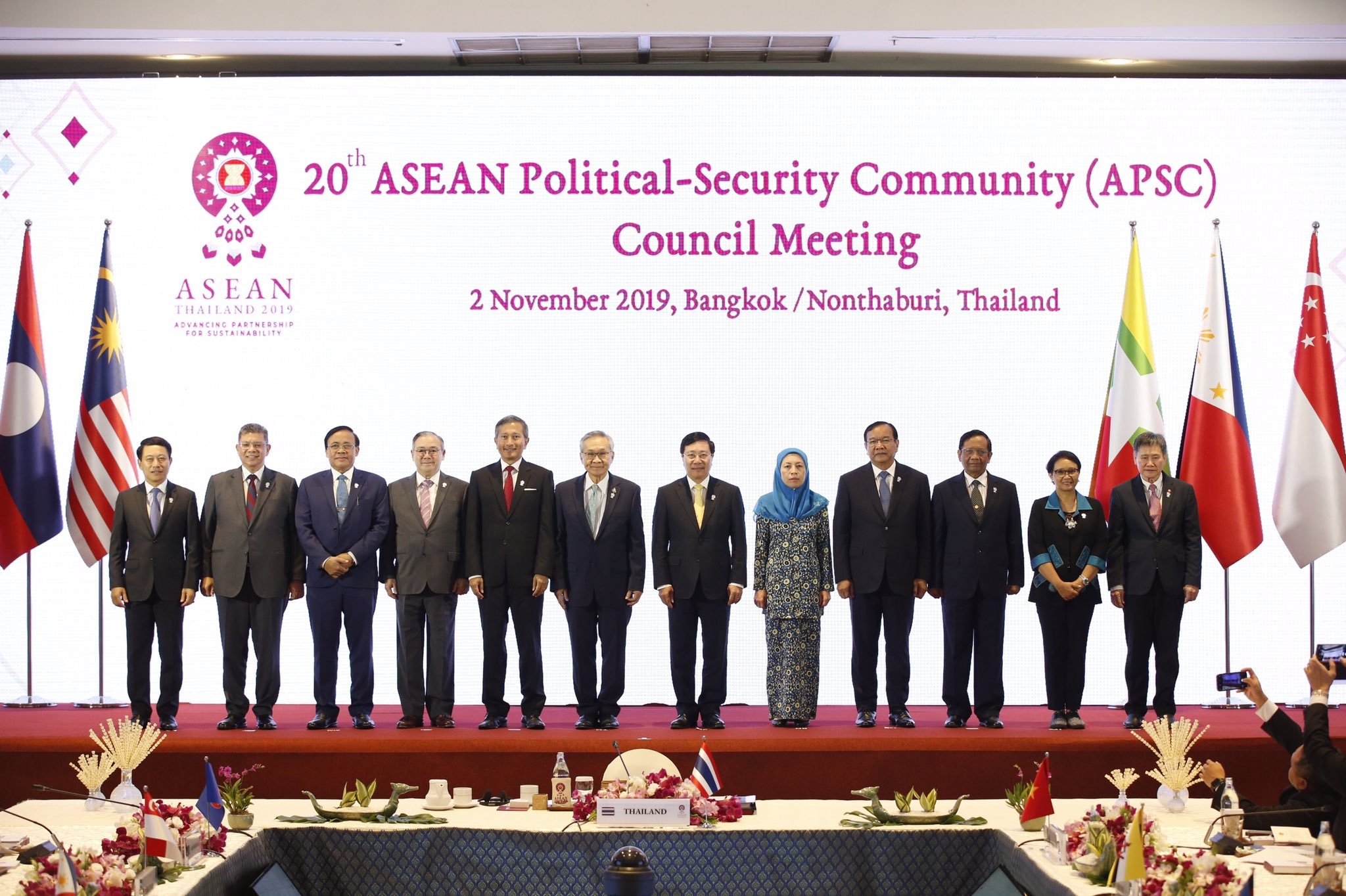Deputy PM, FM Minh underlines strategic significance of ASEAN solidarity, unity at regional meetings
 |
| Deputy Prime Minister, Foreign Minister Pham Binh Minh (6th from right) attends the 20th ASEAN Political-Security Community (APSC) Council Meeting in Bangkok, Thailand on November 2, 2019. The above meetings are held within the framework of the 35th ASEAN Summit and related Summits in Thailand from November 2-4. |
Addressing the events, Deputy PM, FM Minh spoke highly of ASEAN’s achievements after more than four years of implementation of the ASEAN Community Vision 2025, which have contributed to maintenance of peace, security and stability and to facilitation of cooperation and development in the region.
The achievements also contributed to strengthening ASEAN’s capacity to respond to challenges while consolidating the bloc’s connectivity to bring practical benefits to people in the region, Minh added.
As next year will mark the five-year implementation of the ASEAN Community Vision 2025 and the blueprints for its pillars, along with other major anniversaries, Minh urged ASEAN to conduct mid-term review of the ASEAN Community Vision 2025, identify ways to successfully realize the Vision while figuring out new orientations to improve the effectiveness of ASEAN-led cooperation mechanisms in a bid to contribute to consolidating ASEAN centrality in an open, transparent and rule-based regional architecture.
The Vietnamese Deputy PM, FM emphasized the strategic significance of further consolidating ASEAN solidarity and unity as it lays foundation for ASEAN’s success over the past years and in the future.
ASEAN needs to continue promoting its capacity to actively adapt to new opportunities and challenges, including those arising from the 4th Industrial Revolution towards spreading a message of a dynamic ASEAN Community with inclusive and sustainable development.
For political-security pillar, Minh called for more efforts in upholding and popularizing the values, principles and conduct standards that are generally recognized in the region in parallel with fostering dialogue and trust building process
He also called for creating an environment conducive to negotiations of an effective and efficient Code of Conducts in the East Sea in accordance with international law, including the 1982 United Nations Convention on the Law of the Sea in order to sustain ASEAN’s central role and leading position in the cooperation processes for peace, security and cooperation in the region.
What the stars mean:
★ Poor ★ ★ Promising ★★★ Good ★★★★ Very good ★★★★★ Exceptional
 Tag:
Tag:
Related Contents
Latest News
More News
- Ho Chi Minh City hits $8.37 billion in FDI (December 29, 2025 | 08:28)
- Tax sector wraps up 2025 and sets priorities for next year (December 25, 2025 | 14:00)
- Heavy industries set for pilot greenhouse gas quotas (December 25, 2025 | 10:00)
- $250 million deal targets women-owned SMEs, sustainable agriculture (December 22, 2025 | 17:40)
- UOB sees Vietnam growth easing in fourth quarter (December 22, 2025 | 17:39)
- Government moves to establish International Financial Centre (December 21, 2025 | 21:00)
- Vietnam's IFC to target global investment flows (December 21, 2025 | 18:00)
- Ha Tinh breaks ground on major Vingroup industrial and energy projects (December 19, 2025 | 18:24)
- EVN launches major power infrastructure projects nationwide (December 19, 2025 | 18:17)
- VAL inaugurates second production line to meet domestic animal feed demand (December 19, 2025 | 16:37)























 Mobile Version
Mobile Version